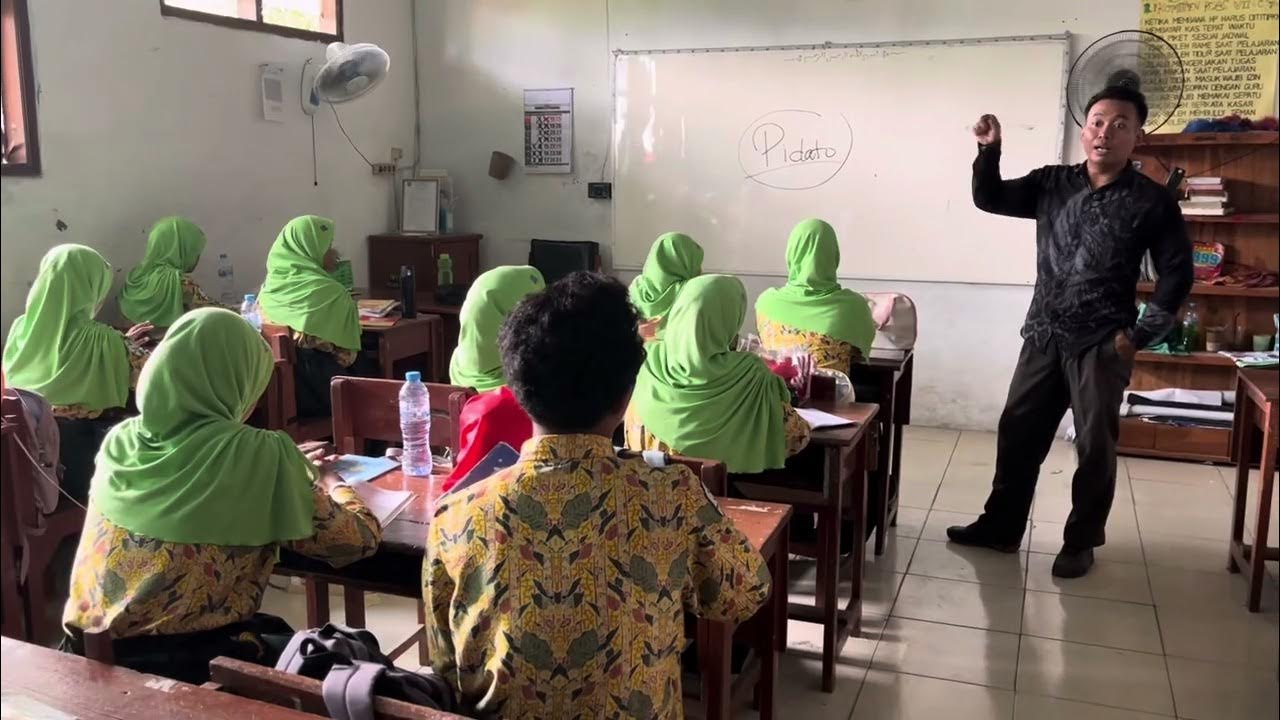TEDxEnola - Dr. Jason Conway - Classroom Environment: It's not about YOU, It's about THEM
Summary
TLDRThe speaker discusses the importance of creating a positive classroom environment, emphasizing that it's not about the teacher but about the students. Reflecting on personal experiences, the speaker shares an epiphany about how competition and certain teaching methods can alienate students. They highlight the challenges teachers face, including changing student values and lack of social skills, and advocate for structured interactions, a sense of belonging, and teaching social skills as part of education. The talk concludes with a call to see beyond oneself and focus on the students' needs and development.
Takeaways
- 📚 Classroom environment is not about the teacher, but about the students and their relationships.
- 🪞 Reflection is crucial in improving one’s teaching practices, but it’s hard to look critically at oneself.
- 💡 The speaker had an epiphany when a student said they hated Fridays due to a competitive game, realizing he was alienating some students.
- 👥 Positive classroom environments lead to higher academic achievement and better social interactions among students.
- 🛑 Teachers often overlook student feedback, fearing it might reveal harsh truths about their classroom management.
- ⚖️ Modern students come with different values and social skills compared to previous generations, leading to challenges in building cooperative environments.
- 🏫 Schools and teachers can no longer remain neutral on teaching social skills, as parents may not provide these skills at home.
- 🔄 Belonging, equity, and social skill development are key to fostering a positive classroom environment.
- 🎯 Classroom and team leaders should structure interactions to ensure all voices are heard and valued, not dominated by a few.
- 🔍 Visionaries in education should keep their eyes open to reflect, envision, and grow beyond the status quo for the betterment of students.
Q & A
What is the main focus of the presentation?
-The main focus of the presentation is on creating a positive classroom environment, emphasizing that it's about the students rather than the teacher.
What analogy does the speaker use to discuss self-reflection in teaching?
-The speaker uses the analogy of looking in a mirror, explaining that it can be difficult to reflect honestly on oneself, especially in relation to one's teaching practices.
What epiphany did the speaker have regarding his classroom environment?
-The speaker realized that although students enjoyed his lectures, some students felt alienated by the competitive Friday activities, which led him to reevaluate the importance of creating an inclusive environment.
Why is building a positive classroom environment important according to the speaker?
-Building a positive classroom environment is important because students need to feel safe and connected in order to be academically successful. Research indicates that a positive environment increases students' academic achievement and efficacy.
What challenges does the speaker mention in creating a positive classroom environment?
-The challenges include teachers having a different perception of the environment compared to students, a lack of emphasis on social skills, and students arriving with different values and social abilities than in the past.
What is the speaker's view on teaching social skills in the classroom?
-The speaker believes that teaching social skills is an essential part of education, and teachers should take responsibility for it rather than assuming it is solely the parents' role.
What are the key elements of a positive classroom environment according to the speaker?
-The key elements include a sense of belonging, feeling needed by others, equity, and finding value in one's actions, which leads to increased engagement and learning.
How does the speaker illustrate the concept of equity in social interactions?
-The speaker gives examples such as waiting in line at an amusement park or sitting next to someone on a plane, emphasizing the importance of fairness and social norms.
What does the speaker suggest to improve classroom interactions?
-The speaker suggests structuring interactions in a way that allows everyone to be heard, and providing opportunities for students to practice social skills in a supportive environment.
What is the final challenge that the speaker leaves the audience with?
-The speaker challenges the audience to reflect on how they envision their classroom or team environment, encouraging them to focus on the students' growth and success rather than their own reflections.
Outlines

هذا القسم متوفر فقط للمشتركين. يرجى الترقية للوصول إلى هذه الميزة.
قم بالترقية الآنMindmap

هذا القسم متوفر فقط للمشتركين. يرجى الترقية للوصول إلى هذه الميزة.
قم بالترقية الآنKeywords

هذا القسم متوفر فقط للمشتركين. يرجى الترقية للوصول إلى هذه الميزة.
قم بالترقية الآنHighlights

هذا القسم متوفر فقط للمشتركين. يرجى الترقية للوصول إلى هذه الميزة.
قم بالترقية الآنTranscripts

هذا القسم متوفر فقط للمشتركين. يرجى الترقية للوصول إلى هذه الميزة.
قم بالترقية الآنتصفح المزيد من مقاطع الفيديو ذات الصلة

INTERAKSI PEMBELAJARAN GURU DAN SISWA PERTEMUAN KE 1

Percakapan Siswa SD - Membangun Karakter Peduli Lingkungan

How To Actually Become Disciplined WITHOUT willpower… | The Leading Behaviour Expert Chase Hughes

CONTOH PERKENALAN GURU BARU DI KELAS X SMA

How Do We ACTUALLY Build Trust In Our Teams?

3MinuteELT: How to help ESL students with ADHD
5.0 / 5 (0 votes)
